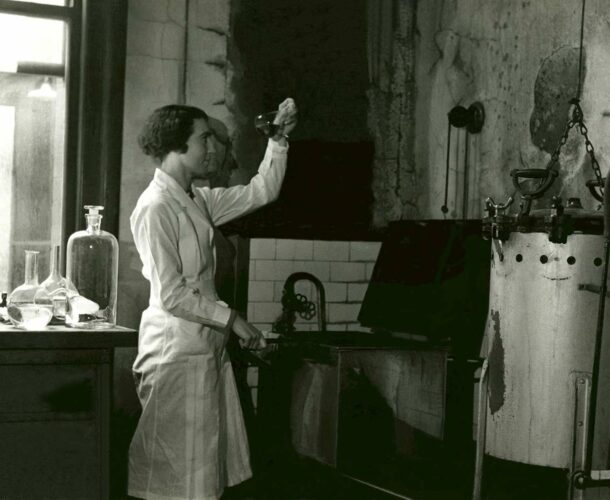“The time is rapidly approaching when additional substantial financial support will be necessary unless the work of the institute is to be seriously hampered by further retrenchment. Since 1930, we have continued the work of the institute, without any expansion but without serious reduction in efficiency, by reducing the salaries of the staff and by curtailing expenditure on materials and apparatus.1”
Public and private funding
Grants from the Australian Government are supporting research into Australian snake venoms, staphylococcal infections, polio, and dysentery in infants and young children.
The Felton Bequest continues to make an annual donation, in addition to purchasing specialised equipment such as an Edinger Projector, costing £100.
The financial position of the biochemical department is very uncertain: £1500 is required for department maintenance, yet only £500 is available from the institute’s endowment fund interest, and £100 each from the Danks Trust and Mrs A Brown.
We are also indebted to the Elsie Marion Carty Fund, Mackie Trust and Sumner Trust, who have donated £345, £100 and £20 respectively. But even with this generous help our expenditure slightly exceeds our income.2
Maintaining our research efficiency
Our staff numbers presently stand at seven full-time and three part-time members, in addition to nine members of staff appointed by the Melbourne Hospital. “To maintain our present output of work without any expansion, we need an additional assured annual income of £1000, and, failing this, further retrenchment, which will seriously impair our efficiency, will be inevitable.”3
1 Walter and Eliza Hall Institute 1934, Annual Report 1933-1934, Walter and Eliza Hall Institute, Melbourne, Victoria, p6
2 Walter and Eliza Hall Institute 1933, Annual Report 1932-1933, Walter and Eliza Hall Institute, Melbourne, Victoria p7
3 Walter and Eliza Hall Institute 1934, Annual Report 1933-1934, Walter and Eliza Hall Institute, Melbourne, Victoria, p6




